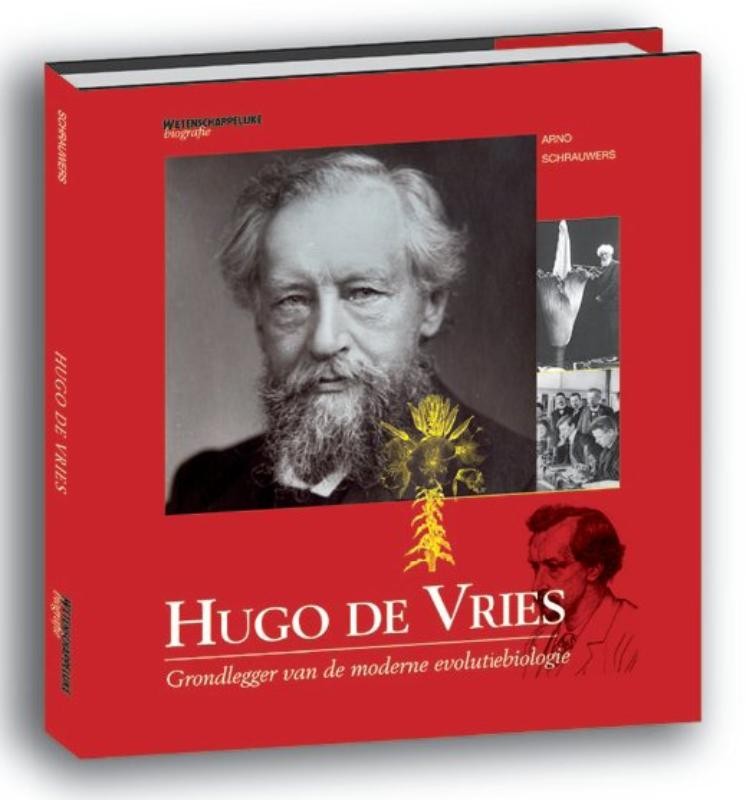
Bureau ISBN Hugo de Vries
Hugo de Vries is the father of mutation theory. His arguments in favor of mutation and its role in evolution were very influential. What did Hugo de Vries discover? Hugo de Vries discovered.
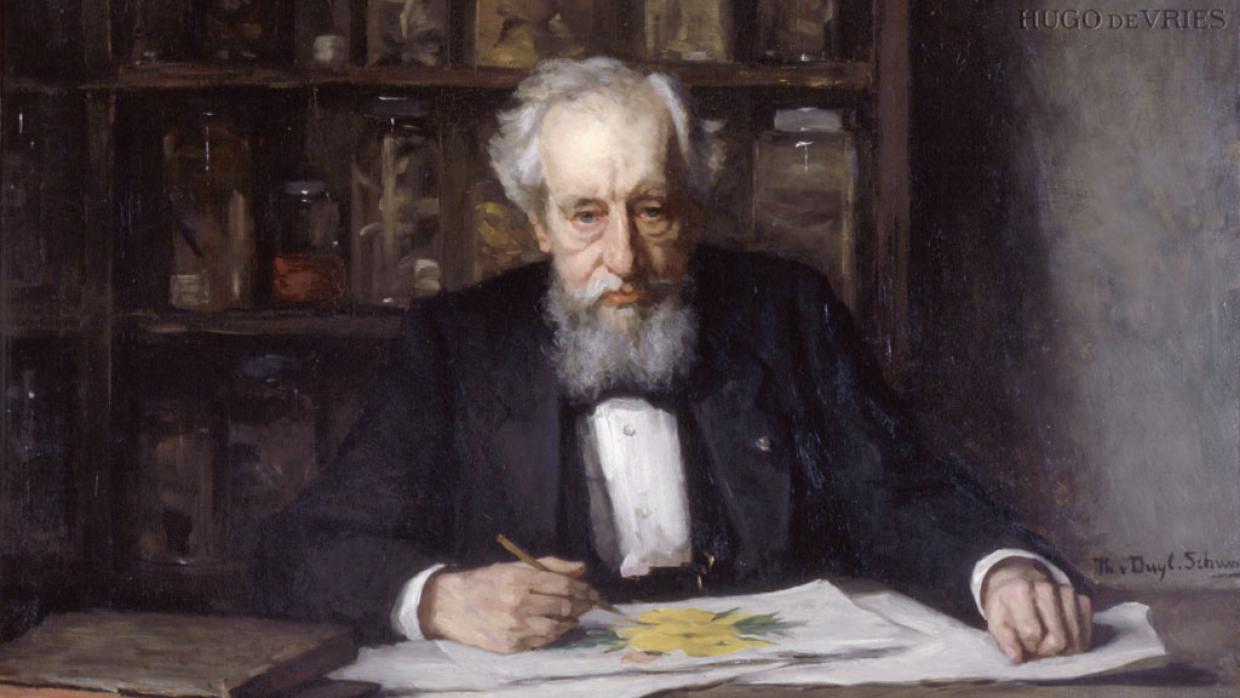
Lunteren eert voormalig UvAhoogleraar Hugo de Vries Folia
Advanced at the beginning of the 20th century by Dutch botanist and geneticist Hugo de Vries in his Die Mutationstheorie (1901-03; The Mutation Theory ), mutation theory joined two seemingly opposed traditions of evolutionary thought.

Portrait of Dutch physiologist, Hugo de Vries Stock Image H404/0095 Science Photo Library
For Hugo De Vries, such probabilistic studies were to allow him to distinguish between two possible sources of variation, either by quantitative changes in the number of active pangenes (increased or decreased by selection as by nutrition), or qualitative changes creating new kinds of pangenes. "One can distinguish according to the conception.

Hugo de Vries AnthroWiki
Hugo Marie de Vries ( Dutch pronunciation: [ˈɦyɣoː də ˈvris]) (16 February 1848 - 21 May 1935) [2] was a Dutch botanist and one of the first geneticists.
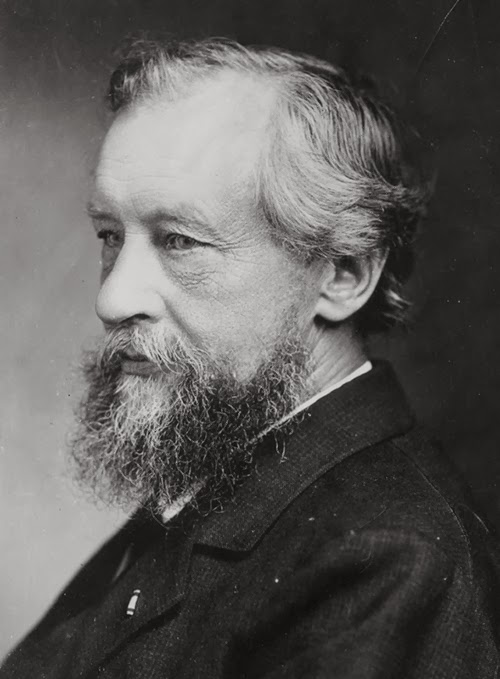
CURIOSIDADES CIENTÍFICAS DE VRIES. Las mutaciones y su importancia en la evolución.
Hugo de Vries was born in Haarlem, Netherlands. He was a Professor of Botany at the University of Amsterdam when he began his genetic experiments with plants in 1880. He completed most of his hybridization experiments without knowing about Mendel's work. Based on his own results, de Vries drew the same conclusions as Mendel.

Hugo de Vries 18481935 Dutch Botanist Stock Photo Alamy
Hugo de Vries, (born February 16, 1848, Haarlem, Netherlands—died May 21, 1935, near Amsterdam), Dutch botanist and geneticist who introduced the experimental study of organic evolution.

Hugo Marie de Vries, Dutch botanist and Stock Image C052/7912 Science Photo Library
Hugo Marie de Vries was a Dutch botanist and one of the first geneticists. He is known chiefly for suggesting the concept of genes, rediscovering the laws of heredity in the 1890s while unaware of Gregor Mendel's work, for introducing the term mutation, and for developing a mutation theory of evolution.In 1889, De Vries published his book Intracellular Pangenesis, in which, based on a modified.

Biologia con Dr. Avicai Post Mendeliana Biografia Hugo de Vries Entrada 3 Parte 1
Hugo de Vries, a Dutch botanist and geneticist, was born Feb. 16, 1848. De Vries was interested in botany from his earliest days, and he studied the science at Leiden and then in Heidelberg and Würzburg in Germany.
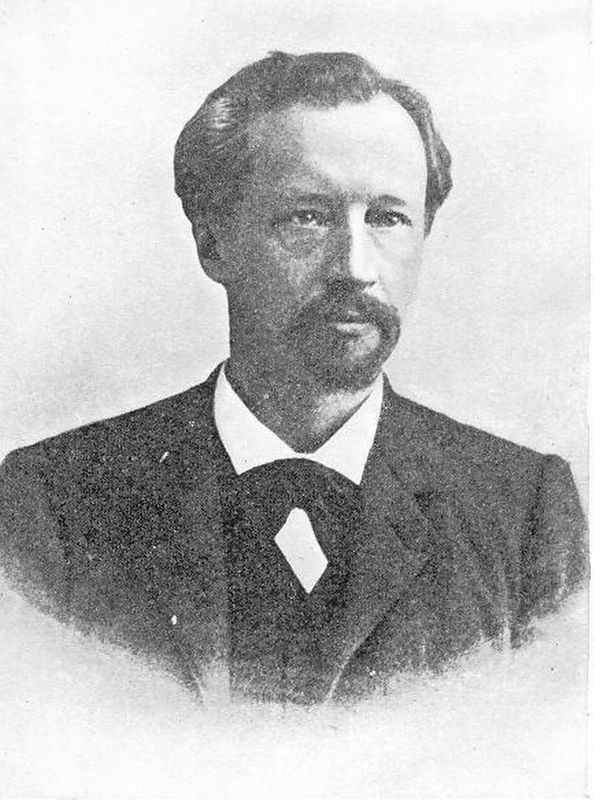
Hugo de Vries Historical Marker
Overview Hugo De Vries (1848—1935) Dutch plant physiologist and geneticist Quick Reference (1848-1935) Dutch plant physiologist and geneticist Born the son of a politician at Haarlem in the Netherlands, de Vries studied botany at Leiden and Heidelberg.
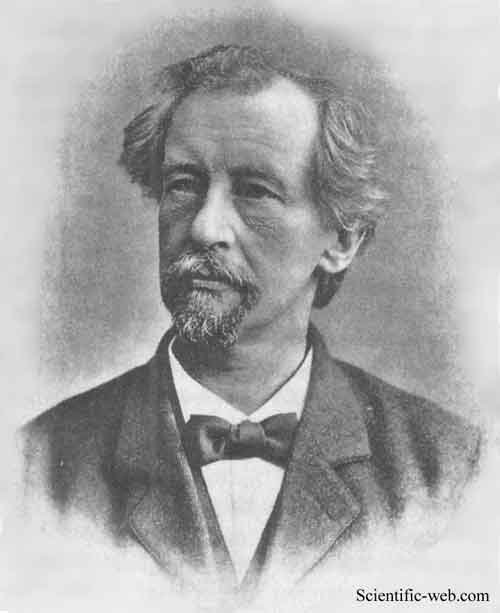
Hugo de Vries
People Science and Technology Botany: Biographies Hugo de Vries Vries, Hugo de views 2,018,759 updated May 21 2018 VRIES, HUGO DE ( b. Haarlem, Netherlands, 16 February 1848; d. Lunteren, Netherlands, 21 May 1935), Plant physiology, genetics, evolution. The ancestors of Hugo de Vries 1 had been Baptists since the Reformation.
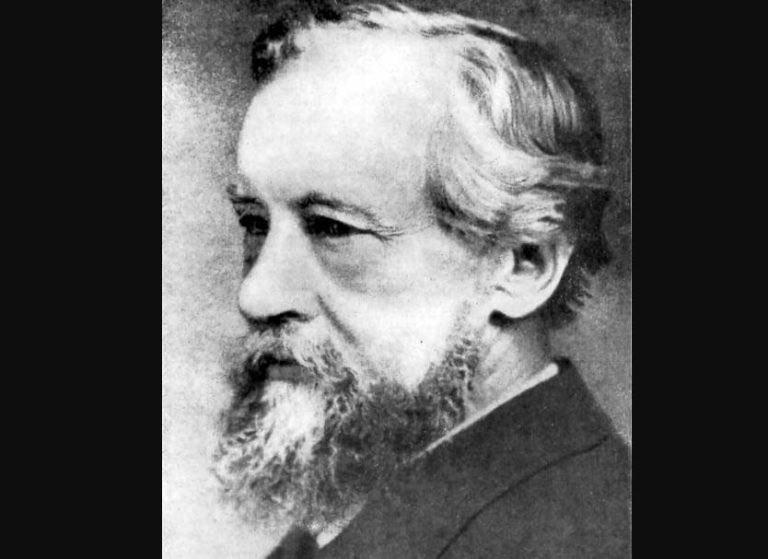
Biografía de Hugo de Vries, científico de plantas y biólogo holandés
Hugo de Vries (1848-1935) Hugo de Vries was born in Haarlem, Netherlands. He was a Professor of Botany at the University of Amsterdam when he began his genetic experiments with plants in 1880. He completed most of his hybridization experiments without knowing about Mendel's work.

Dutch physiologist, Hugo de Vries Stock Image H404/0097 Science Photo Library
DeVries, Correns and Tschermak independently rediscover Mendel's work. Three botanists - Hugo DeVries, Carl Correns and Erich von Tschermak - independently rediscovered Mendel's work in the same year, a generation after Mendel published his papers. They helped expand awareness of the Mendelian laws of inheritance in the scientific world.

Biologia
Hugo de Vries Famous for his Mutation Theory of Descent By D. T. MacDougal November 1911 Issue The Sciences

Hugo de Vries by Therese Schwartze Woman Painting, Figure Painting, Portrait Painting, A4 Poster
In the history of evolutionary biology, Hugo de Vries is known as a proponent of the mutation theory of evolution, in which new species are believed to arise by single mutational events ( de Vries 1901-1903, 1909, 1910 ).
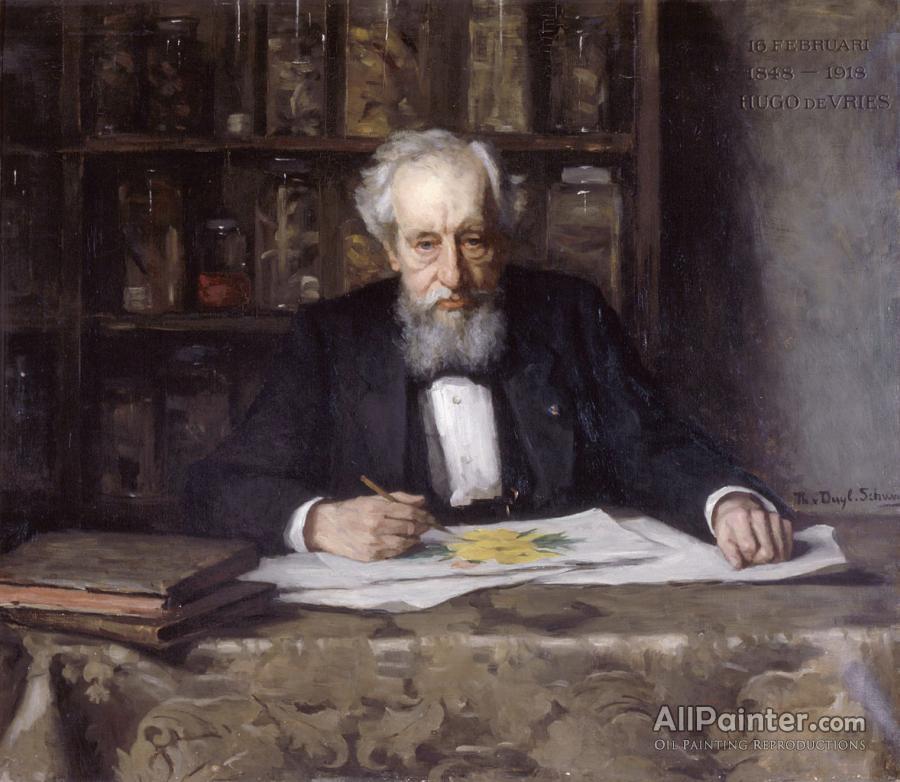
Therese Schwartze Hugo De Vries Oil Painting Reproductions for sale AllPainter Online Gallery
Hugo De Vries was born in 1848 into a family of political distinction. Footnote 5 His family was intellectual, but in the humanities rather than in the natural sciences. Notwithstanding this family interest, it is said that even as a primary-school pupil Hugo was interested in the natural world.
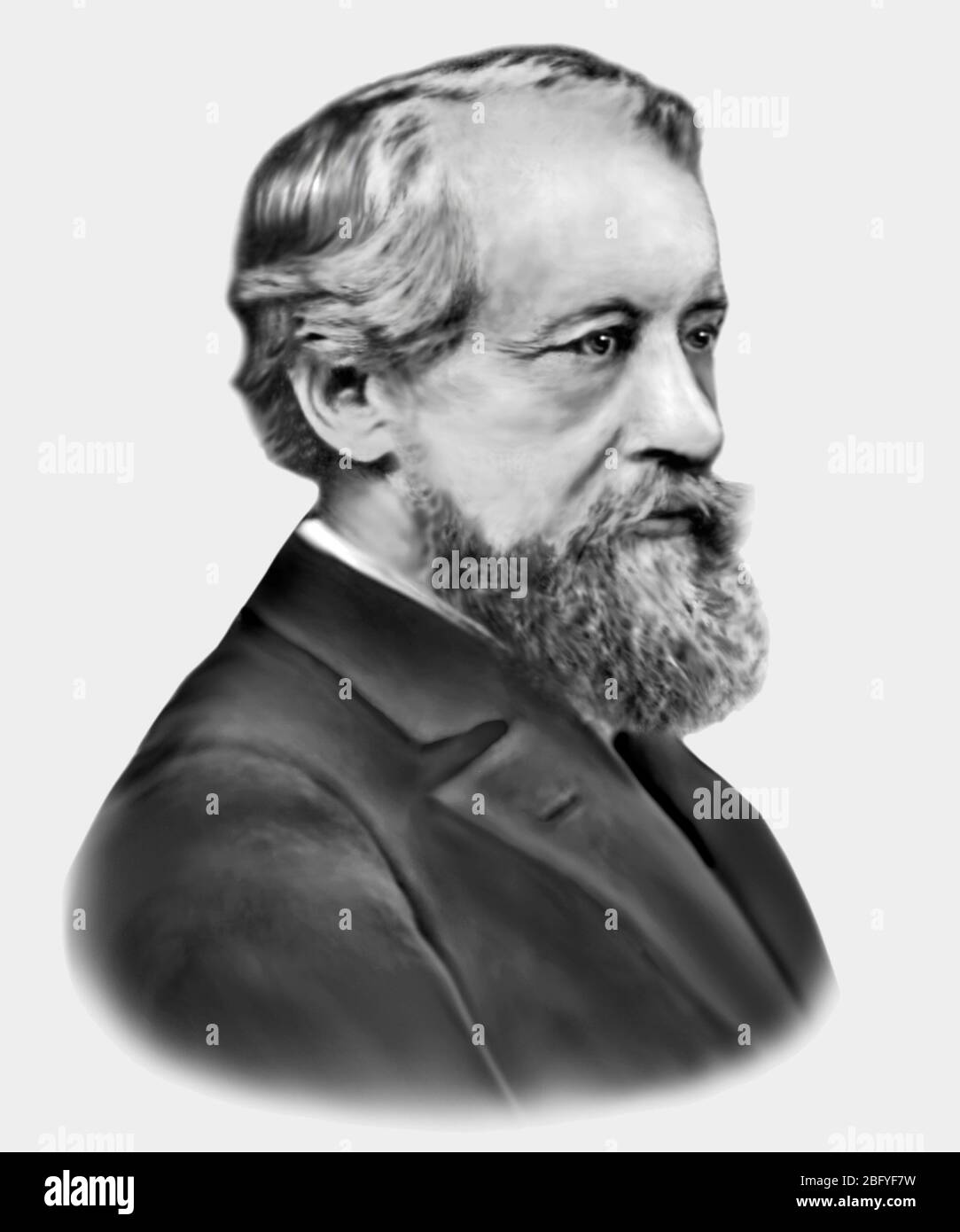
Hugo de Vries 18481935 Dutch Botanist Stock Photo Alamy
DeVries, Hugo - Understanding Evolution (1848-1935) Dutch botanist famous for his contributions to genetics. He rediscovered the results first obtained by Mendel and described genetic changes in his plants.